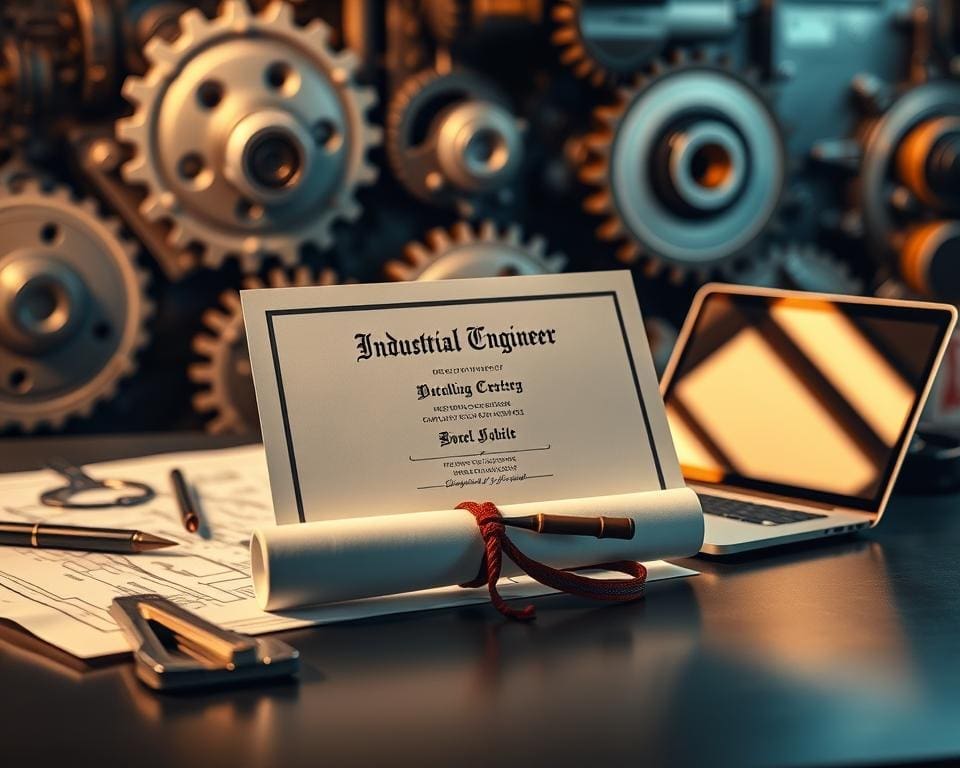Industrial engineering is a dynamic field that requires a comprehensive understanding of various disciplines, making the right qualifications essential for aspiring engineers. The journey begins with industrial engineering education, which lays the foundation for a successful career in industrial engineering. Beyond academic accolades, the skills for industrial engineers encompass analytical thinking, effective communication, and the ability to innovate processes that enhance operational efficiency.
In a rapidly evolving job landscape within the United Kingdom, the importance of continuous professional development cannot be overstated. Practical experience further amplifies the significance of these qualifications, ensuring that individuals are well-equipped to meet the challenges of the industry. By marrying technical proficiency with real-world application, future industrial engineers can significantly influence their career trajectories.
Understanding the Role of Industrial Engineers
The role of industrial engineers has become increasingly vital in today’s fast-paced world. By focusing on optimising complex processes and systems, these professionals drive efficiency and innovation across various sectors. Understanding the importance of industrial engineering requires an overview of its core principles and the significant contributions industrial engineers make to their industries.
Definition and Importance of Industrial Engineering
Industrial engineering is an engineering discipline that focuses on designing, improving, and implementing integrated systems of people, materials, processes, and technology. It seeks to eliminate wastefulness in production processes while maximising quality and productivity. The importance of industrial engineering extends beyond cost reduction; it incorporates aspects of resource management, workforce optimisation, and equipment efficiency, which ultimately yield an enhanced operational framework.
The Impact of Industrial Engineers on Industries
The industrial engineering impact can be seen in numerous sectors such as manufacturing, healthcare, logistics, and services. Industrial engineers employ advanced methodologies to analyse complex systems, identify inefficiencies, and propose solutions that lead to improvements in performance. Their work not only elevates productivity but also contributes to healthier work environments and sustainable practices.
Essential Educational Qualifications
The path to becoming an accomplished industrial engineer begins with strong educational qualifications. Aspiring professionals must obtain relevant undergraduate degrees that lay the foundation for a successful career in the field. These industrial engineering degrees offer essential knowledge and skills needed to thrive in various industries, enabling graduates to address complex challenges effectively.
Undergraduate Degrees in Industrial Engineering
Pursuing a Bachelor’s degree in Industrial Engineering or related disciplines is vital for those looking to enter this dynamic sector. Renowned institutions, like the University of Warwick and Loughborough University, provide comprehensive programmes that equip students with the tools required to excel. Such educational qualifications for industrial engineers not only cover core engineering principles but also delve into project management, systems optimisation, and production processes.
Accreditation and its Significance
Choosing an accredited programme plays a crucial role in a student’s educational journey. Accreditation from respected bodies such as the Engineering Council UK ensures that the curriculum meets rigorous quality standards. Graduating from accredited programs provides assurance to employers regarding the competence of the candidates. As a result, programmes that maintain this accreditation enhance the credibility of the industrial engineering degrees offered, thereby increasing their acceptance in the competitive job market.
What qualifications do industrial engineers need?
In the dynamic field of industrial engineering, possessing the right qualifications can significantly influence career progression. Postgraduate qualifications in industrial engineering provide engineers with a deeper understanding and advanced skills required to tackle complex challenges in various sectors. A specialisation in industrial engineering, such as focused studies in Supply Chain Management or Quality Assurance, enhances one’s expertise, allowing professionals to stand out in competitive job markets.
Postgraduate and Specialised Qualifications
Pursuing postgraduate qualifications in industrial engineering, such as a Master’s degree, equips engineers with essential theoretical knowledge and practical applications. Degree programmes often offer specialisation options, enabling engineers to tailor their education to meet specific career goals. Such specialisations can broaden career opportunities and increase earning potential, making it a valuable investment in one’s future.
Certifications that Enhance Career Prospects
Certifications for engineers play a vital role in demonstrating commitment to professional development. Credentials such as Six Sigma or Project Management Professional (PMP) are highly regarded and illustrate an engineer’s capability to manage projects effectively and improve processes systematically. These certifications not only boost an engineer’s marketability but also affirm their dedication to maintaining high standards in their work.
Skills Required for Success in Industrial Engineering
The field of industrial engineering demands a specific set of skills essential for thriving in various industrial environments. Mastering these skills for industrial engineers not only fosters personal growth but also contributes significantly to organisational efficiency and productivity.
Analytical and Problem-Solving Skills
Strong analytical skills form the backbone of effective decision-making in industrial engineering. Engineers routinely face complex challenges that require a structured approach to identifying problems and devising practical solutions. For instance, a team may need to optimise a manufacturing process. By leveraging analytical skills, engineers can dissect various factors influencing performance, leading to significant enhancements in operational efficiency.
Technical Proficiency in Engineering Software
Equally important are the technical skills in engineering software, which enable industrial engineers to design, analyse, and optimise systems. Familiarity with tools such as AutoCAD and MATLAB is crucial for engineers striving to bring innovative solutions to life. Proficient use of simulation software allows for testing and refinement of processes without the costs associated with physical trials. Such skills enhance project outcomes, ensuring that engineers are equipped to meet the demands of contemporary industry.
Professional Experience and Internships
Gaining practical experience through industrial engineering internships is essential for aspiring engineers. These internships bridge the gap between academic knowledge and real-world application, preparing candidates for the demands of the industry. Many employers seek individuals who possess not only educational qualifications but also hands-on experience. This practical experience enhances understanding of engineering principles and demonstrates the ability to apply theory in practical situations.
Importance of Gaining Practical Experience
Engaging in industrial engineering internships provides numerous benefits. Interns get the opportunity to work on live projects, learn from seasoned professionals, and develop critical skills that textbooks alone cannot teach. This experience often proves invaluable when seeking employment, as companies tend to favour candidates who have demonstrated their capabilities in a professional setting. Furthermore, internships foster networking opportunities, connecting interns with industry leaders and potential mentors.
Internship Opportunities in the UK
The UK is home to several prominent firms offering valuable internship programmes. Companies like BAE Systems and Rolls-Royce provide platforms for students to gain practical experience while contributing to significant engineering projects. These industrial engineering internships allow interns to immerse themselves in innovative environments, where they can enhance their skills and increase their employability upon graduation.
Continuing Education and Lifelong Learning
The field of industrial engineering is characterised by rapid advancements and evolving technologies, making the commitment to continuing education vital for professionals in the discipline. Lifelong learning in engineering not only enhances individual skills but also ensures that engineers remain competitive in a dynamic labour market. By staying abreast of industry trends and technological developments, engineers can better serve their organisations and clients.
Various avenues are available for professional development for engineers seeking to advance their knowledge. Engaging in workshops, online courses, and specialised training sessions can significantly enhance one’s expertise. Furthermore, active participation in professional organisations, such as the Institution of Engineering and Technology (IET), offers engineers a platform to network and access valuable resources that promote ongoing education.
Ultimately, investing in continuing education and embracing a culture of lifelong learning is crucial for industrial engineers. By doing so, they not only bolster their career prospects but also contribute to the innovation and efficiency of their industries. A commitment to professional development not only enriches individual careers but also fortifies the engineering sector as a whole.









